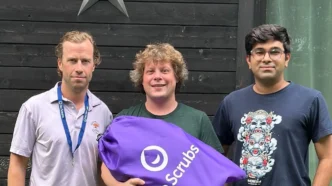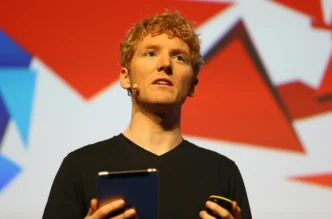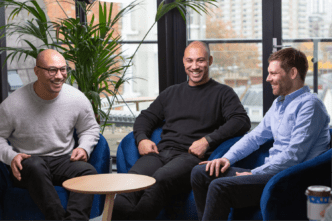Doing laundry is one of those unavoidable chores that most people would rather skip. It’s time-consuming, tedious, and rarely enjoyable — which is exactly why a wave of on-demand laundry startups is catching the attention of venture capitalists. From fresh entrants like NoScrubs to established players like Rinse, investors are pouring millions into companies promising to simplify laundry with just a tap.
Just 11 months after launching, NoScrubs has closed a $2 million pre-seed round led by Initialized Capital, with participation from Frontier Venture Capital, Day One Ventures, Y Combinator, HubSpot Ventures, and other notable backers. The Austin-based startup is already nearing 1,000 unique customers and aims to scale quickly. According to CEO and co-founder Matt O’Connor, formerly one of Instacart’s first 20 employees, NoScrubs was born out of his frustration with slow and overpriced laundry services.
O’Connor and co-founder Sudhanshu Gautam, a former IBM product manager, have built a system that promises to return clean, folded laundry in just a few hours. Customers can opt for one-time pickups or subscribe for regular service. What sets NoScrubs apart, says O’Connor, is its hyperlocal strategy — partnering with vetted laundromats and using shared laundry rooms in apartment complexes to minimize travel time and costs.
With only 13 employees, NoScrubs plans to expand across Texas and into national markets by 2026. And Initialized’s Zoe Perret believes they’re on the right track. “They’re tapping into underused laundry infrastructure,” she said. “That makes the model both scalable and capital-efficient.”
Meanwhile, Rinse, the elder statesman in the space, continues to grow. The San Francisco-based company just raised a $23 million Series D led by LG Electronics, bringing its total funding to over $70 million since launching in 2013. Co-founders Ajay Prakash, Sam Cheng, and James Joun started Rinse to bring a tech-first approach to an outdated chore — and have since cleaned over 100 million garments.
Rinse operates in several major U.S. cities and offers both dry cleaning and laundry services, with turnaround in as little as 24 hours (for an additional fee). Unlike gig-economy platforms, Rinse classifies its workers — including 600 valets and 100+ non-valet employees — as full-time staff, emphasizing control and consistency in quality.
The company is also leaning into B2B expansion, providing laundry solutions for multifamily housing, cafes, spas, and more. Its next phase includes acquiring and rebranding brick-and-mortar dry cleaners to further solidify its presence in local communities. At the same time, Rinse offers both pay-as-you-go and subscription options, giving users flexibility in how they interact with the service.
Even LG is leveraging its new investment by bundling Rinse’s services with purchases of its home washers and dryers — a move that further integrates the startup into consumer lifestyles.
Of course, the path hasn’t been smooth for all players. Companies like Washio and Prim, once considered pioneers in on-demand laundry, ultimately folded. But with the U.S. laundry and dry-cleaning market valued at $15.75 billion in 2024, there’s still plenty of opportunity for companies that get the model right.
While NoScrubs and Rinse take different approaches — one agile and decentralized, the other structured and scaling — both represent a new era of on-demand laundry startups trying to take the burden off your hands. Whether they succeed depends not only on speed and convenience but also on economics, customer retention, and local adaptability.













